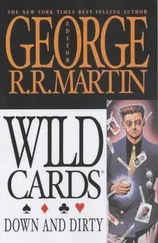ELIZABETH SMART

By Grand Central Station I Sat Down and Wept
Foreword by Yann Martel

Copyright Table of Contents Cover Title Page Copyright Dedication FOREWORD PART ONE PART TWO PART THREE PART FOUR PART FIVE PART SIX PART SEVEN PART EIGHT PART NINE PART TEN About the Author Also by the Author About the Publisher
Fourth Estate
An Imprint of HarperCollins Publishers 1 London Bridge Street, London, SE1 9GF
www.harpercollins.co.uk
First published in Great Britain by Editions Poetry London (Nicholson & Watson) 1945
Copyright © the literary estate of Elizabeth Smart
Foreword copyright © Yann Martel 2015
The Author asserts the moral right to be identified as the author of this work
All rights reserved under International and Pan-American Copyright Conventions. By payment of the required fees, you have been granted the non-exclusive, nontransferable right to access and read the text of this e-book on-screen. No part of this text may be reproduced, transmitted, down-loaded, decompiled, reverse engineered, or stored in or introduced into any information storage and retrieval system, in any form or by any means, whether electronic or mechanical, now known or hereinafter invented, without the express written permission of HarperCollins ebooks.
HarperCollins Publishers has made every reasonable effort to ensure that any picture content and written content in this ebook has been included or removed in accordance with the contractual and technological constraints in operation at the time of publication.
Source ISBN: 9780586090398
Ebook Edition © APRIL 2015 ISBN: 9780007375882
Version: 2015-04-16
Dedication Table of Contents Cover Title Page Copyright Dedication FOREWORD PART ONE PART TWO PART THREE PART FOUR PART FIVE PART SIX PART SEVEN PART EIGHT PART NINE PART TEN About the Author Also by the Author About the Publisher
to Maximiliane von Upani Southwell
Cover
Title Page ELIZABETH SMART By Grand Central Station I Sat Down and Wept Foreword by Yann Martel
Copyright Copyright Table of Contents Cover Title Page Copyright Dedication FOREWORD PART ONE PART TWO PART THREE PART FOUR PART FIVE PART SIX PART SEVEN PART EIGHT PART NINE PART TEN About the Author Also by the Author About the Publisher Fourth Estate An Imprint of HarperCollins Publishers 1 London Bridge Street, London, SE1 9GF www.harpercollins.co.uk First published in Great Britain by Editions Poetry London (Nicholson & Watson) 1945 Copyright © the literary estate of Elizabeth Smart Foreword copyright © Yann Martel 2015 The Author asserts the moral right to be identified as the author of this work All rights reserved under International and Pan-American Copyright Conventions. By payment of the required fees, you have been granted the non-exclusive, nontransferable right to access and read the text of this e-book on-screen. No part of this text may be reproduced, transmitted, down-loaded, decompiled, reverse engineered, or stored in or introduced into any information storage and retrieval system, in any form or by any means, whether electronic or mechanical, now known or hereinafter invented, without the express written permission of HarperCollins ebooks. HarperCollins Publishers has made every reasonable effort to ensure that any picture content and written content in this ebook has been included or removed in accordance with the contractual and technological constraints in operation at the time of publication. Source ISBN: 9780586090398 Ebook Edition © APRIL 2015 ISBN: 9780007375882 Version: 2015-04-16
Dedication Dedication Table of Contents Cover Title Page Copyright Dedication FOREWORD PART ONE PART TWO PART THREE PART FOUR PART FIVE PART SIX PART SEVEN PART EIGHT PART NINE PART TEN About the Author Also by the Author About the Publisher to Maximiliane von Upani Southwell
FOREWORD
PART ONE
PART TWO
PART THREE
PART FOUR
PART FIVE
PART SIX
PART SEVEN
PART EIGHT
PART NINE
PART TEN
About the Author
Also by the Author
About the Publisher
At one point in this beautifully sad book, Elizabeth Smart says of herself, ‘I am more vulnerable than the princess for whom seven mattresses could not conceal the pea.’
The more appropriate fairy tale for the sake of comparison would be Sleeping Beauty , because By Grand Central Station I Sat Down and Wept is the story of a woman who was asleep for a hundred years until the kiss of a man (more precisely his poetry) woke her up to life and to love.
Smart’s evocation of love is sweeping, aching, exhilarating, rapturous, incantatory:
When the Ford rattles up to the door, five minutes (five years) late, and he walks across the lawn under the pepper-trees, I stand behind the gauze curtains, unable to move to meet him, or to speak, as I turn to liquid to invade his every orifice when he opens the door. More single-purposed than the new bird, all mouth with his one want, I close my eyes and tremble, anticipating touch.
And again:
What is going to happen? Nothing. For everything has happened. All time is now, and time can do no better. Nothing can ever be more now than now, and before this nothing was. There are no minor facts in life, there is only the one tremendous one.
I know, I know this is merely the introduction and not the book itself, but one more:
But the surety of my love is not dismayed by any eventuality which prudence or pity can conjure up, and in the end all that we can do is to sit at the table over which our hands cross, listening to tunes from the wurlitzer, with love huge and simple between us, and nothing more to be said.
In this high-wire act of sustained emotional resonance, the following might help anchor the reader in the great wash of language: in August of 1937 in London, Elizabeth Smart, from Ottawa, Canada, came upon a book of poems in a bookshop on Charing Cross Road, and, so the story goes, fell in love with its author, George Barker. But simply loving his words would not do; she wanted to love the man himself. For that, she would need to meet him. Orchestrating that encounter would take three years, requiring various wiles (pretending to be a manuscripts collector) and some cash (she was from a wealthy family that more or less supported her). At last, in 1940, after bringing him over all the way from Japan, where he was unhappily teaching, they met in California, where she was living in an artists’ colony in Big Sur. They first set eyes on each other at a bus stop in Monterey – that’s how the book starts – and they soon became lovers. They would have four children.
Problems soon arose. They were arrested under the Mann Act for travelling with an immoral purpose when they tried to cross a state border. Smart laments:
They are taking me away in a police car. The policeman’s wife sits stiffly in the front seat. They are prosecuting me for silence and for love.
She asks one of the police officers who arrests her:
What do you live for then?
I don’t go for that sort of thing, the officer said, I’m a family man, I belong to the Rotary Club.
Читать дальше














